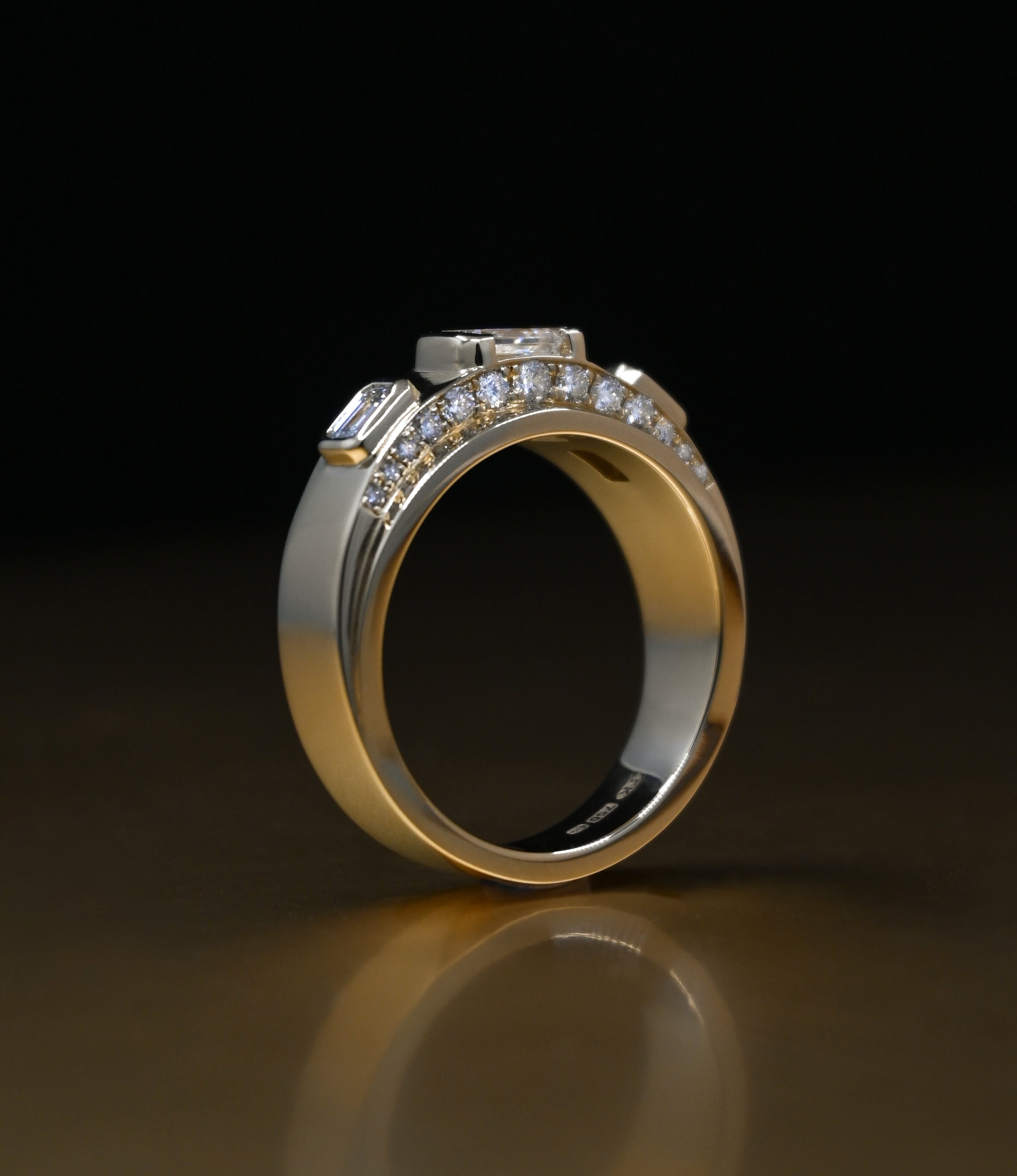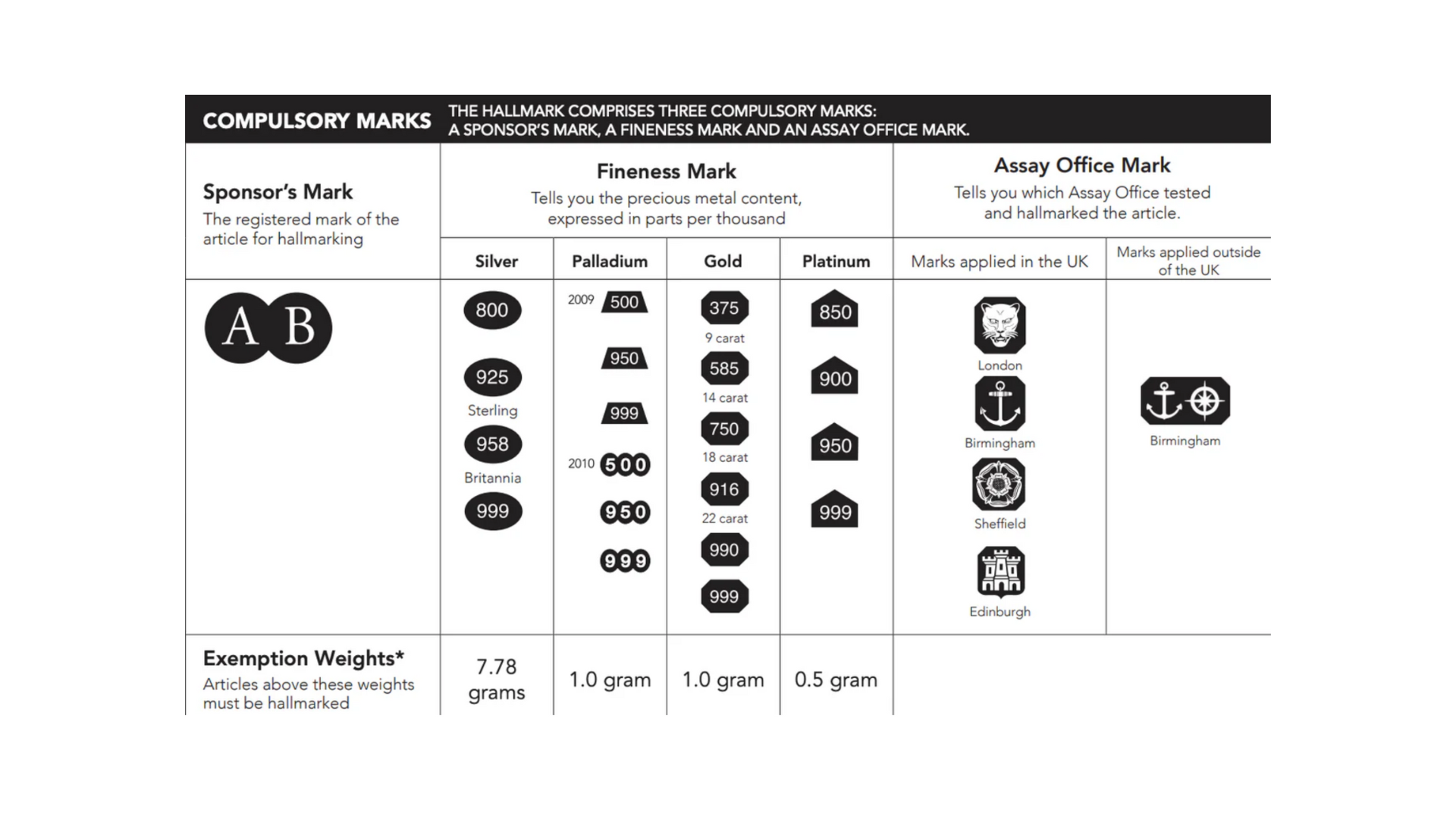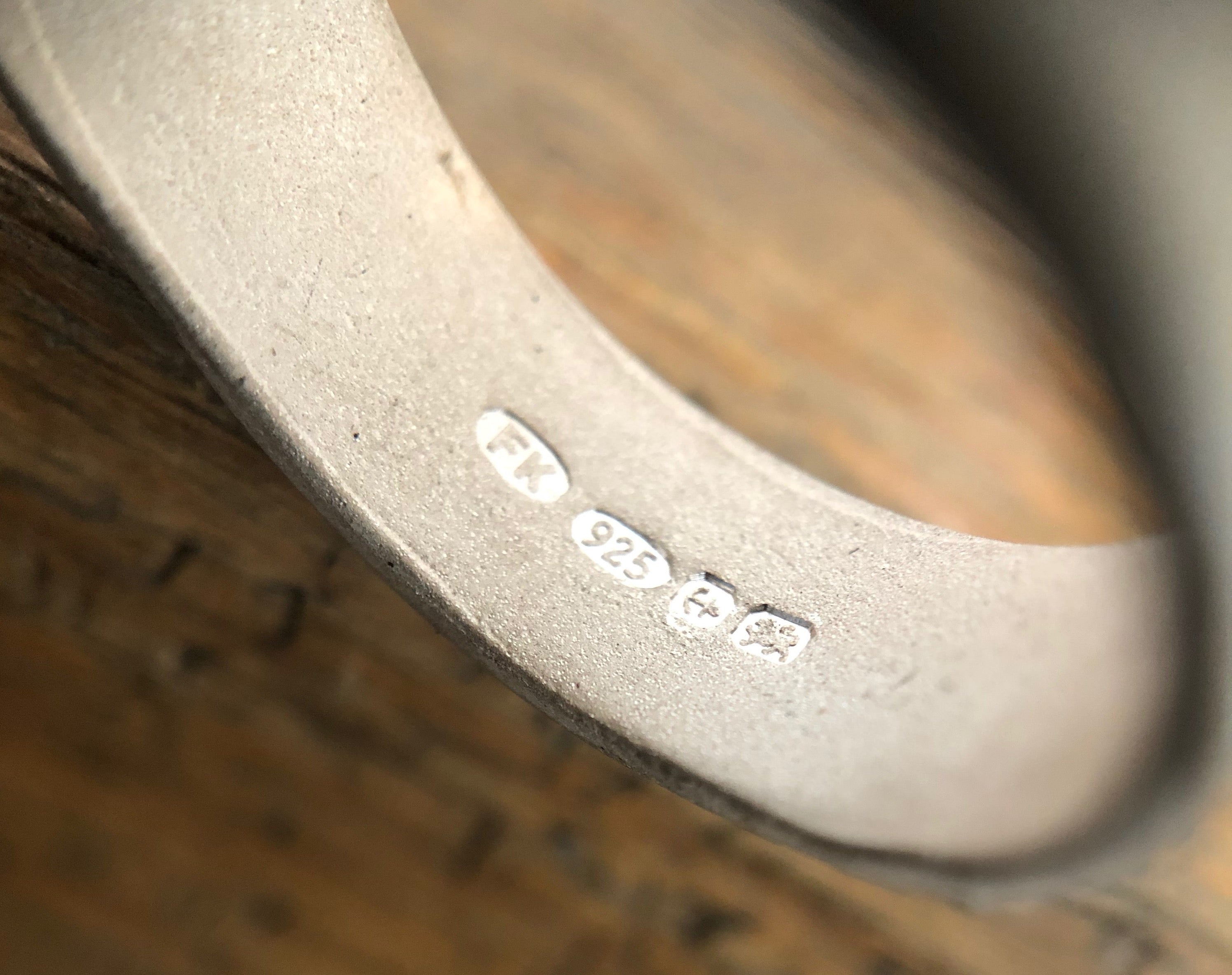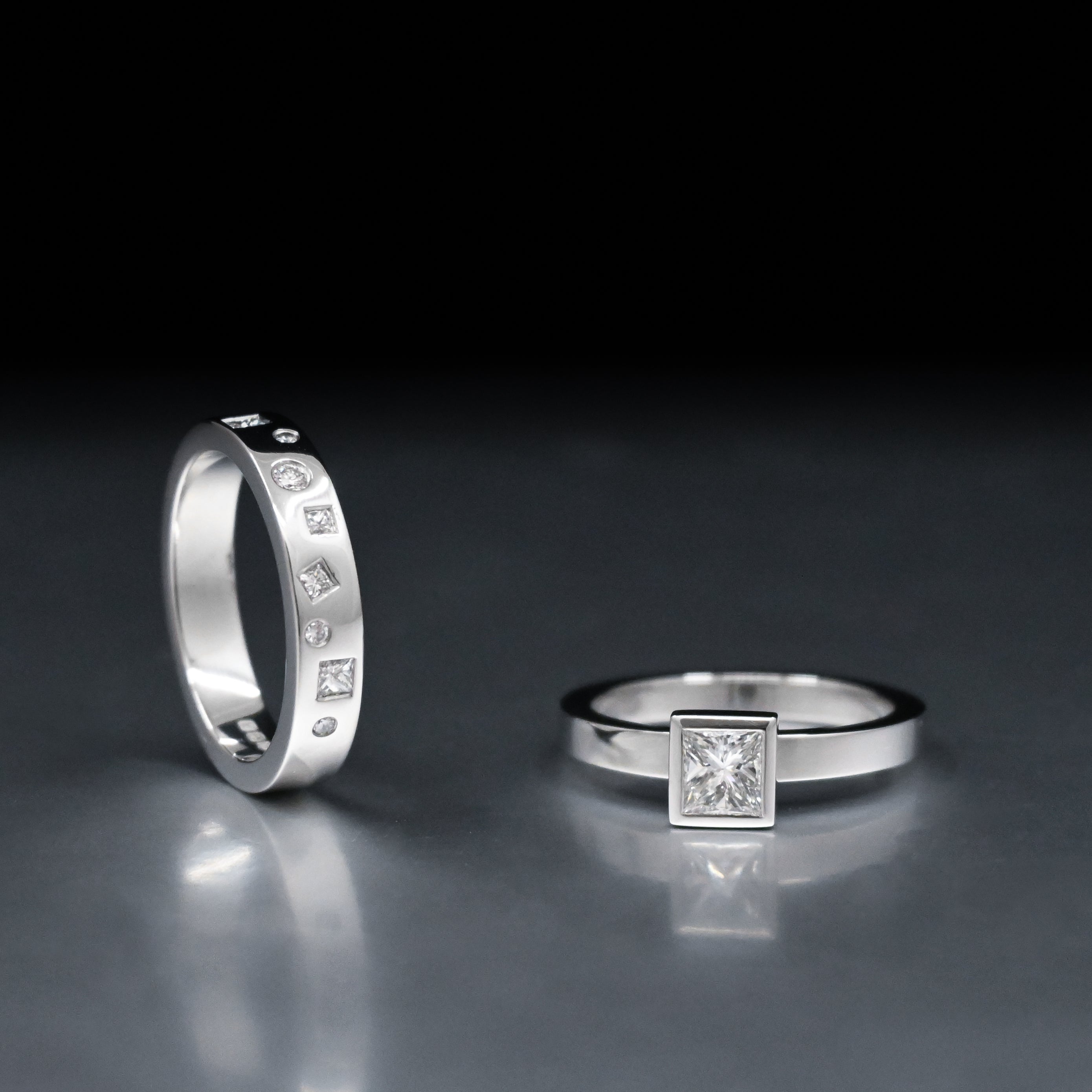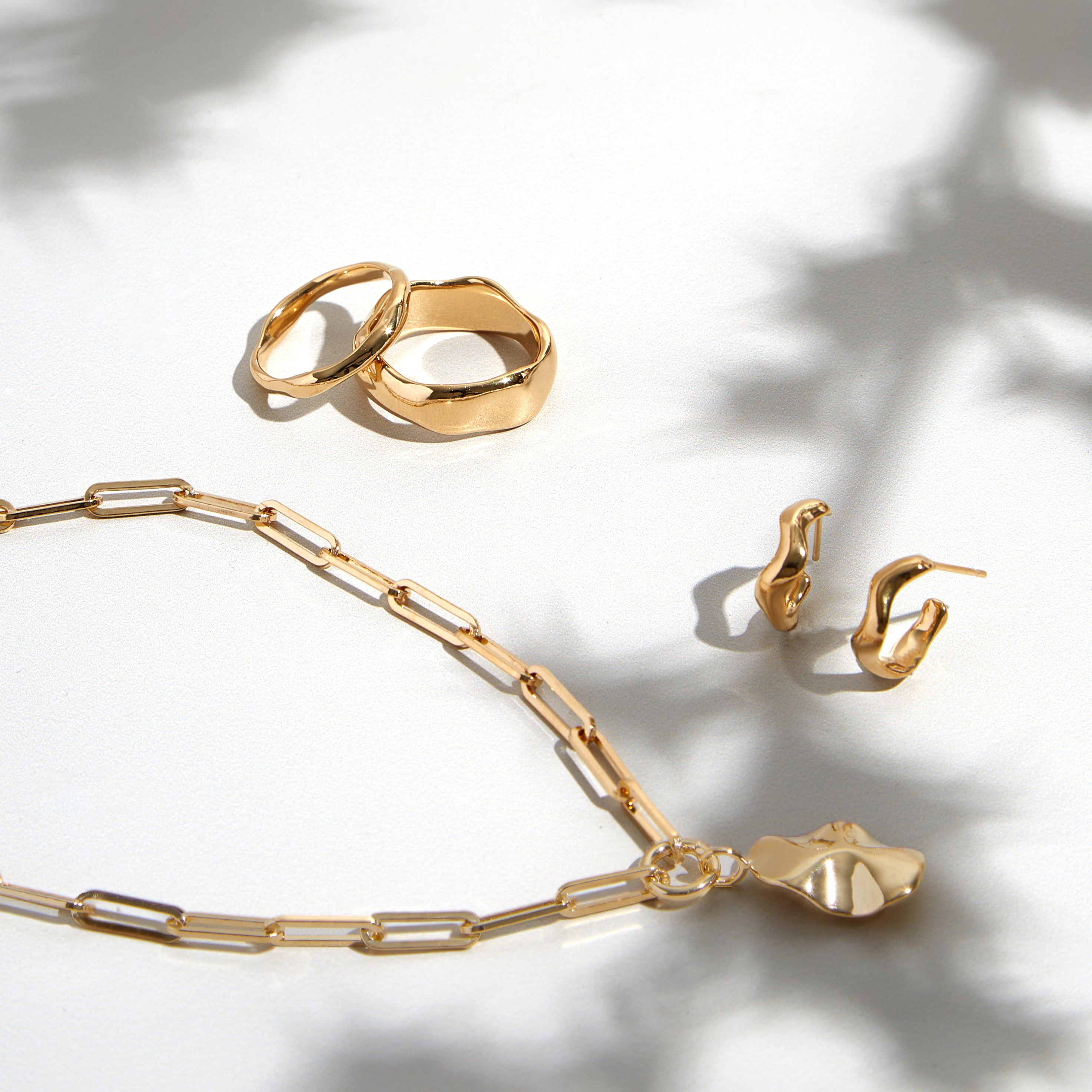What Is Hallmarking and Why Is It Important?
You wouldn’t want to buy a piece of jewellery that isn’t what it says it is, would you? You want to be sure of what carat gold or the purity of silver you are purchasing.
Jewellery is to be hallmarked by law in the U.K (when over a certain weight - for gold it’s 1g, silver is 7.78g and platinum 0.5g), so you know what quality of gold, silver or platinum you are buying. It’s worth knowing what you’re looking for when it comes to hallmarks, so we’ve broken it down for you.
Assay Office Mark
There are Assay Offices in London, Birmingham, Sheffield and Edinburgh. Each has its own mark:
London: Lion
Birmingham: Anchor
Sheffield: Rose
Edinburgh: Castle
At ANUKA, we use the Birmingham Assay Office as it is our nearest but also where I studied.



